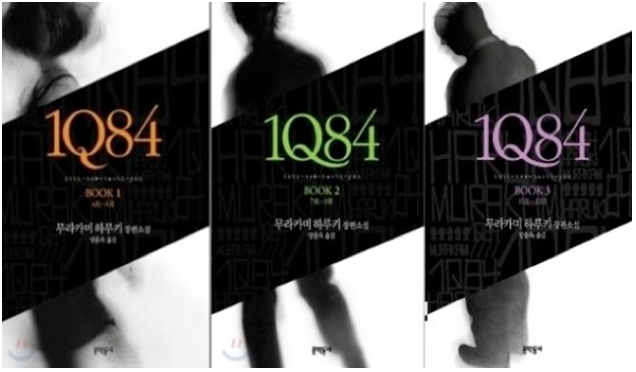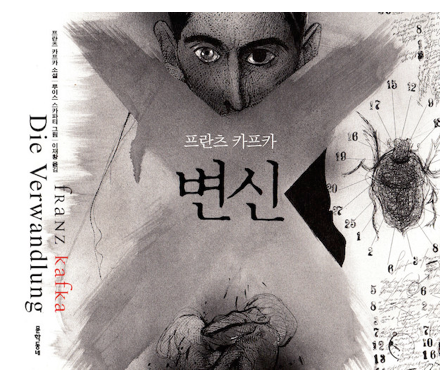Over the next two months, the LARB Korea Blog will feature chapters from a draft of Charles Montgomery’s book-in-progress titled The Explorer’s History of Korean Fiction in Translation, an attempt to give a concise history and understanding of Korean literature as represented in translation. Here is the introductory chapter.
Almost every English language reader would immediately recognize the words “Gregor Samsa awoke one morning to discover that he had been transformed into a giant cockroach” as the first line of Franz Kafka’s masterpiece The Metamorphosis, a work that helped define his style and changed literature forever.
Or, quote to an English reader the line “Mother died today,” and they might well immediately recognize it as the first line of Albert Camus’ The Stranger. If they did not recognize it, perhaps one would only need to begin humming “Killing an Arab” by the English band The Cure to make the literary allusion obvious. Though written in French, The Stranger has been translated and not only read, but incorporated into English-language culture in such a way that it can become not just a hit as a piece of literature but a hit in popular music as well.
To go even farther back in time, one can quote the famous line, “The whole of Gaul is divided into three parts,” and the savvy reader will immediately recognize the first line of Julius Caesar’s account of the Gallic wars. Some might even recognize this quote in its original Latin: “Gallia omnis divisa in partes tres est.”
“The taxi’s radio was tuned to a classical FM broadcast. Janáček’s Sinfonietta—probably not the ideal music to hear in a taxi caught in traffic.” That might be a bit more obscure, but it is the first line from Haruki Murakami’s 1Q84, which sold out upon its first day on sale in Japan and has been translated into many languages with first editions published in at least seven countries (Japan, United States, United Kingdom, Hungary, Norway, Turkey, and Greece). You could go to your local bookstore and immediately purchase this book, most likely in English, perhaps even in some language other than English or Japanese. 1Q84 has also been translated into Persian, Chinese, and Korean. In Korea, the book sells as a three-volume set, as it originally in Japan, but in Korean literature, it has few if any equivalents.
An educated person might well recognize “Tell me, Muse, of the man of many devices, who wandered far and wide after he had sacked Troy’s sacred city, and saw the towns of many men and knew their mind” as the first line of Homer’s The Odyssey, or “To go wrong in one’s own way is better than to go right in someone else’s,” as that of Fyodor Dostoyevsky’s Crime and Punishment.
All of these first sentences cross time, space and language, to achieve immediate recognizability to many English-speaking readers of fiction, whether that reader knows the original language at all, or even that the works come from other languages in the first place.
Yet ask that same reader about the following classic lines from Korean literature in translation:
“Why do murders always seem to happen on Sundays?”
“Perhaps we ought to begin this investigation into the deviations of his life by evoking the problem of memory.”
“Fighting, adultery, murder, theft, prison — the shanty area outside the Seven Star Gate was a breeding ground for all that is tragic and violent in this world.”
or one of my all-time favorite first lines in Korean literature,
“Before my wife turned vegetarian, I thought of her as completely unremarkable in every way.”
It is an almost certainty that the “well-read” reader of translation will not recognize the first line, from Kim Young-ha’s brilliant detective novella Photo Shop Murder. The second line, nearly Nabokovian in nature, comes from Yi Mun-yol’s The Poet, and the third from Kim Dong-in’s translation of the tragic Potatoes. The last sentence is from possibly the most successful translation of Korean literature to date, Han Kang’s The Vegetarian (and, it is worth noting, a kind of spiritual heir to the first line of The Metamorphosis).
There is, in fact, possibly only one opening line that many readers of Korean fiction might recognize: “It’s been one week since Mom went missing.” And yet, ask yourself if you actually did recognize this line from the other candidate for most successful translated work of Korean fiction in history, Shin Kyung-sook’s Please Look After Mom.
Now consider the following plots:
A young, sexually abused hacker takes revenge, with the help of an older male journalist, on her abusers.
A deranged knight on horseback, followed by his loyal companion on burro, tilts ridiculously against windmills.
The adventures, misadventures, and disillusionment of a young man who ends up wanting nothing more than to tend his own garden.
A great, but blocked author visits Venice and finds himself obsessed with an extremely attractive young man. While the writer suffers the pangs of unrequited and unattempted love, he dies of cholera.
To many readers, these plots would be instantly identifiable as those of The Girl with the Dragon Tattoo, Don Quixote, Candide, and Death in Venice. But describe the following story to any English-language reader (or non-Korean speaker): a young boy and a young girl meet while playing by a stream. They meet again and form a kind of friendship. Suddenly, a cloudburst appears out of the sky, forcing the boy and the girl to take shelter in a cramped stack of millet. The story ends with the girl dying, her final request being that she be buried in the same clothes that she always wore when she met the young boy.
This would most likely ring no bell with a non-Korean reader, even though it comes from Sonagi (“Cloudburst”), among the most famous stories in Korean fiction. In fact, until quite recently one would have been hard-pressed to come up with any plot description of a Korean story that a non-Korean would recognize.
When I presented at conferences in Korea, I would always begin with a thought experiment. Imagine someone at a cocktail party in any intellectual city in the English-speaking world. The topic might well turn to literature, at which point the question might arise: “Who is your favorite author from (insert any country here)?” It is easy to imagine a partygoer with quick and easy answers for many countries: Japan, Asia, Russia, Sweden, Germany, Brazil, China, and so on. But faced with the question of “Who is your favorite Korean author?” our hypothetical partygoer may feel the immediate need to go refresh their drink.
And this is the unfortunate position in which translated Korean literature now finds itself, despite yeoman’s work from translators, publishers, the Language Translation Institute of Korea, and others. Despite a few breakthrough works, Korean literature has not succeeded to a level weaves it into the intellectual fabric of the Western world. The good news is that this seems to be slowly changing, and The Explorer’s History of Korean Fiction in Translation will look at Korean fiction through translation, trace its influences and development, and suggest where an interested non-Korean-speaking reader might begin — in some sense, an “idiot’s guide” to translated Korean fiction.
To understand Korean fiction, we must first discuss some of the historical and social influences that have made it what it is, and to some extent helped keep it off the international literary map. This discussion will occur two posts from now, and chapters from The Explorer’s History will appear here at a pace of about one per month. I would love to hear any feedback that readers of the Korea blog might have on them.
Related Korea Blog posts:
The Triumph of Han Kang and the Rise of Women’s Writing in Korea
Bright Lies, Big City: Korean Authors and Seoul
Charles Montgomery is an ex-resident of Seoul where he lived for seven years teaching in the English, Literature, and Translation Department at Dongguk University. You can read more from Charles Montgomery on translated Korean literature here, on Twitter @ktlit, or on Facebook.




